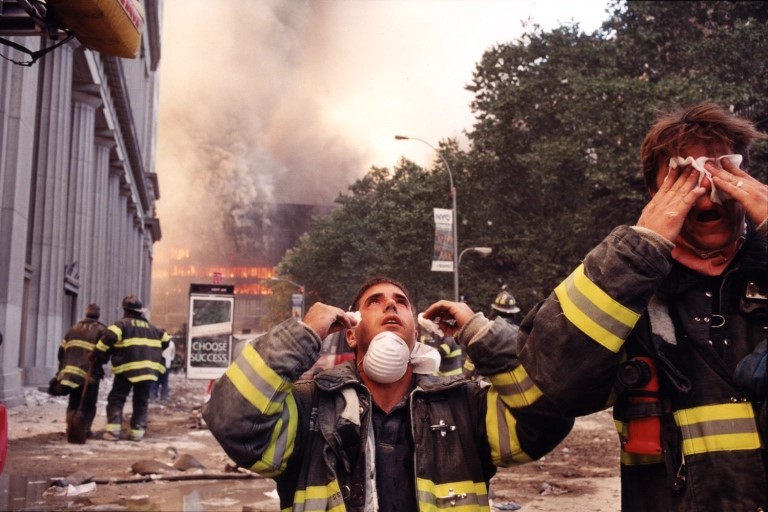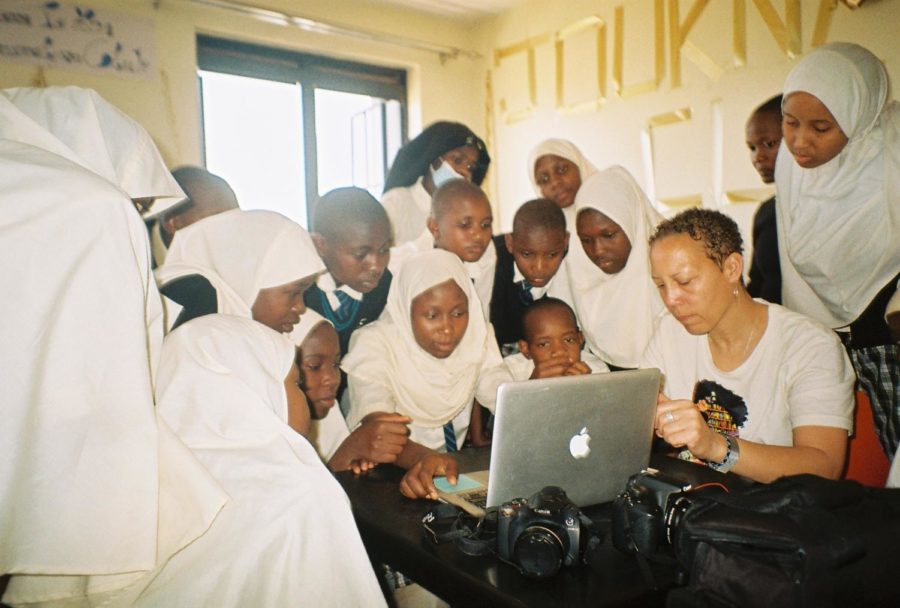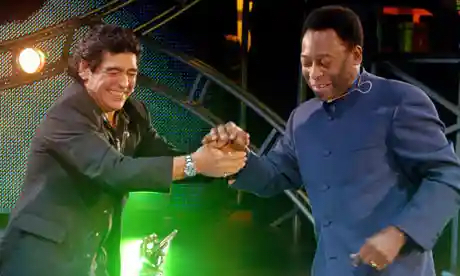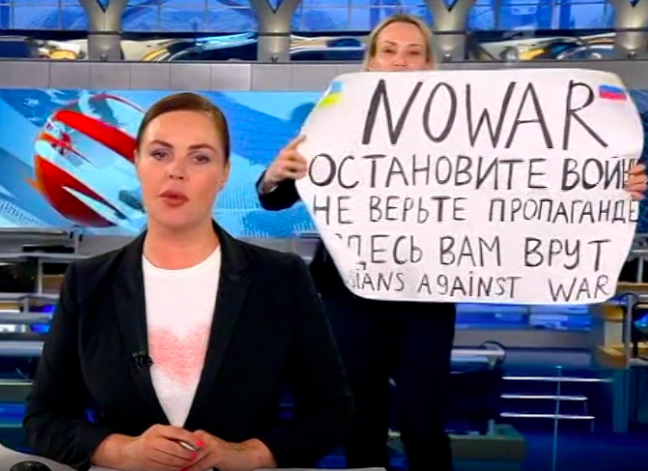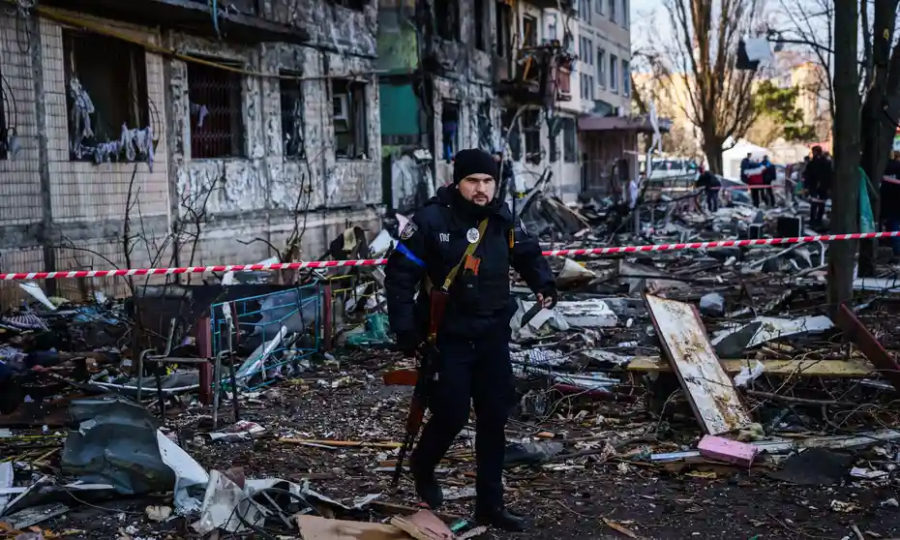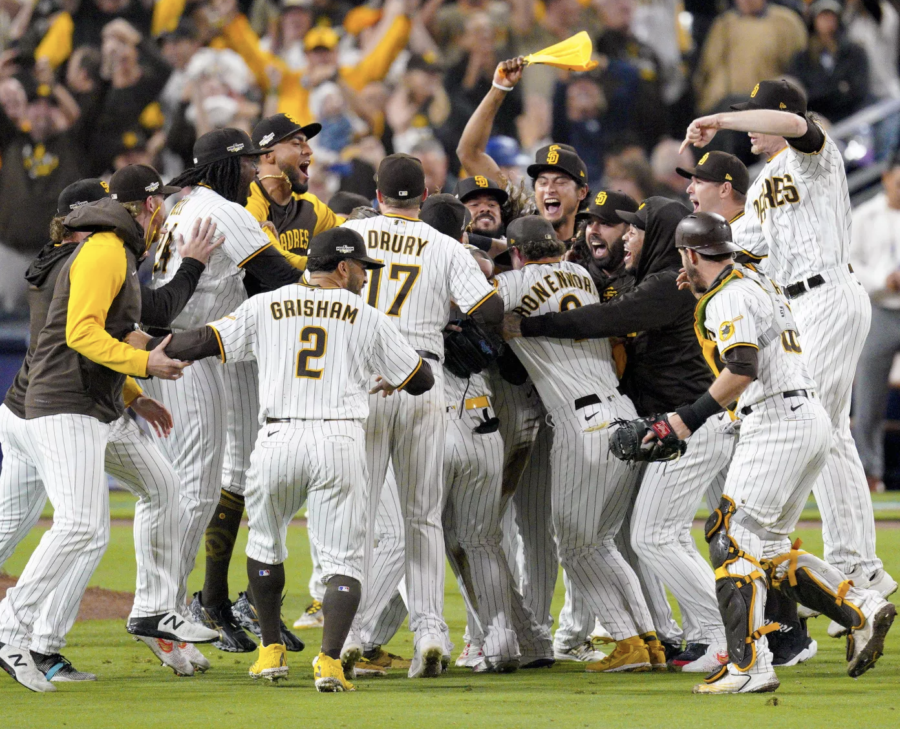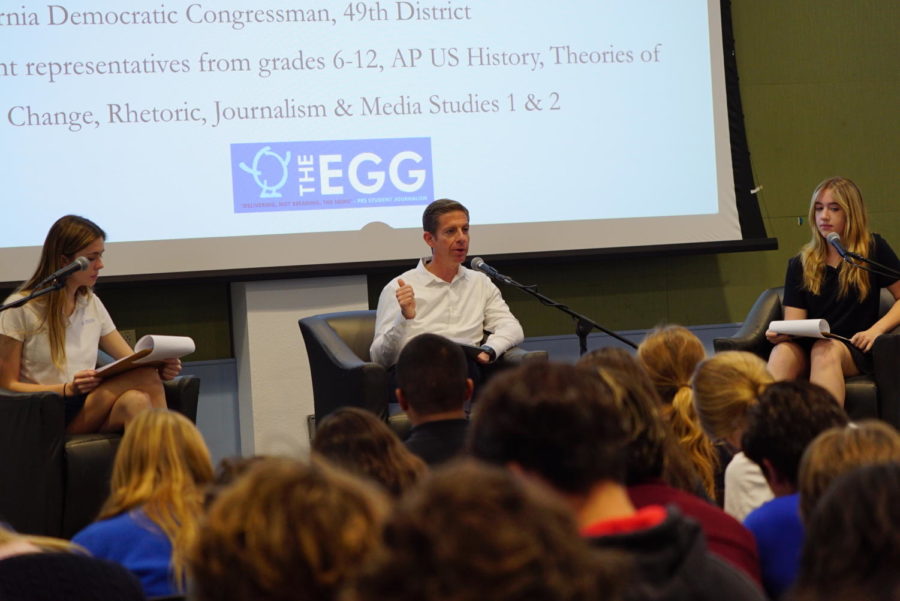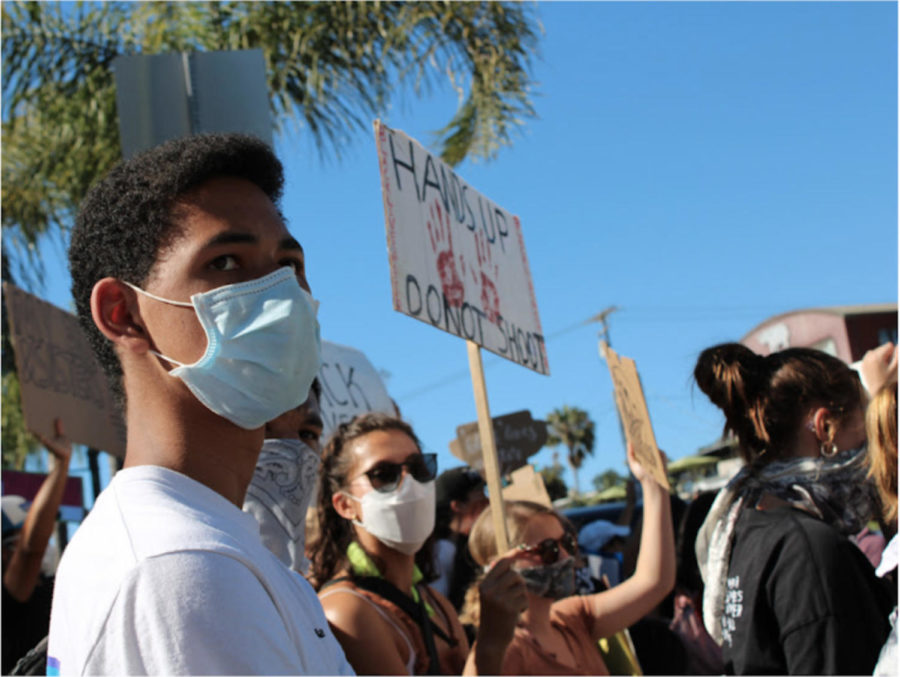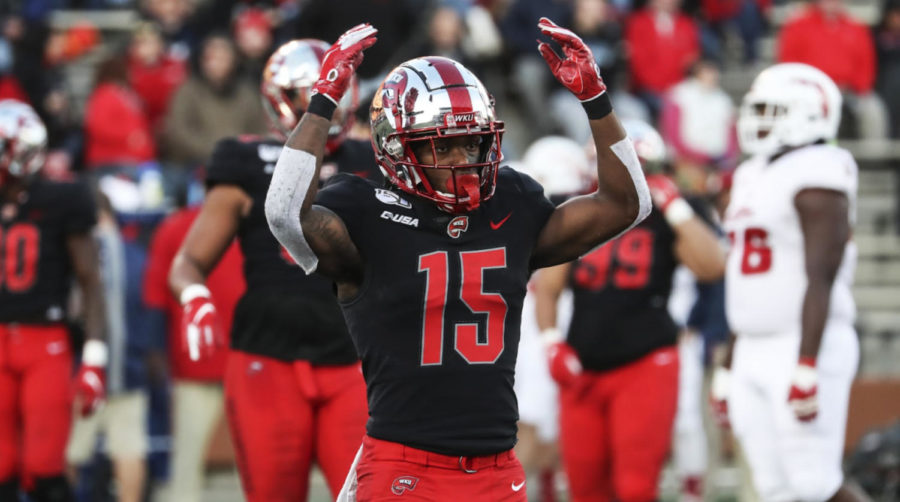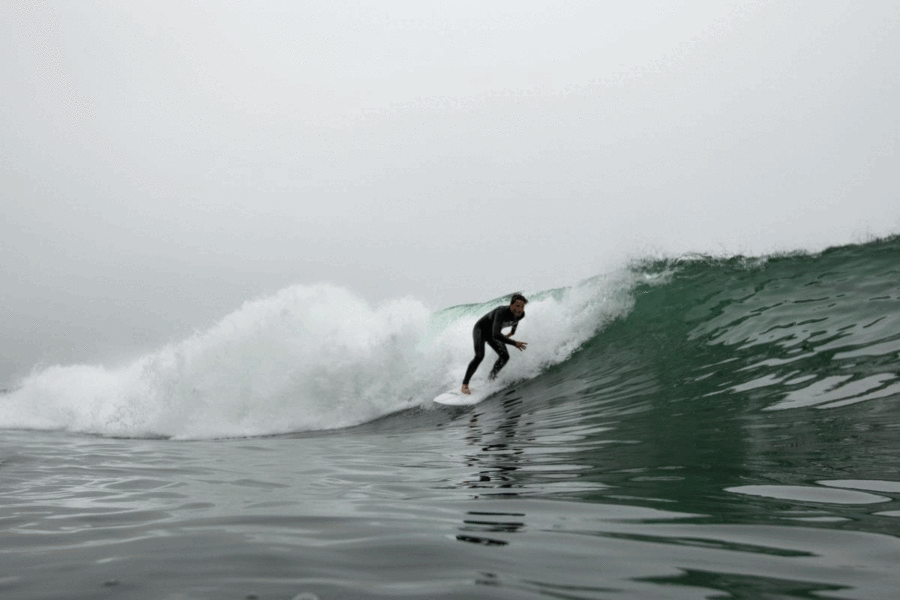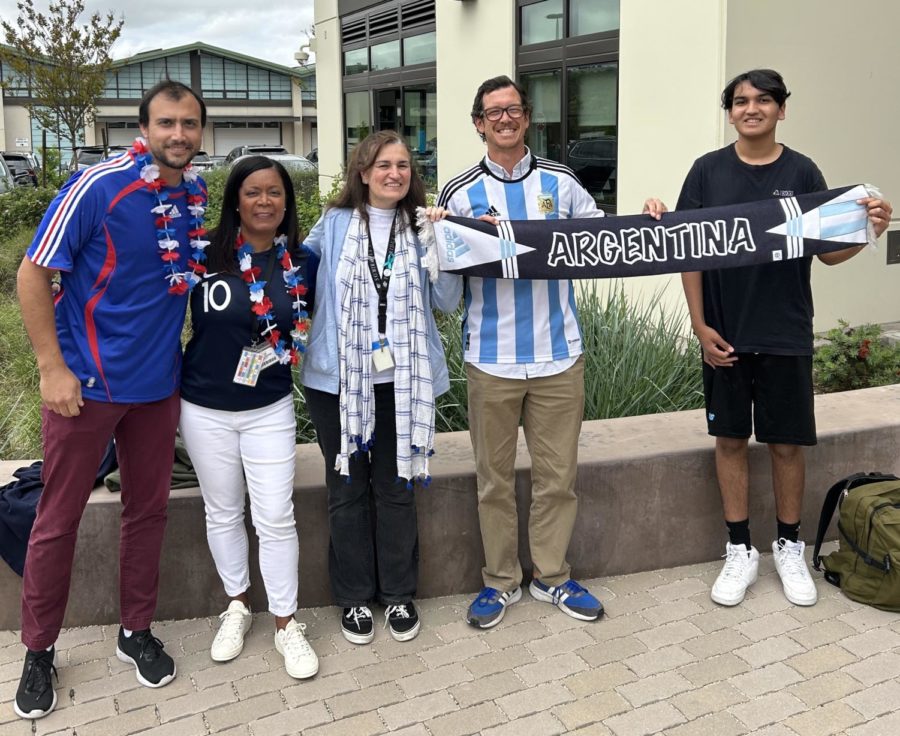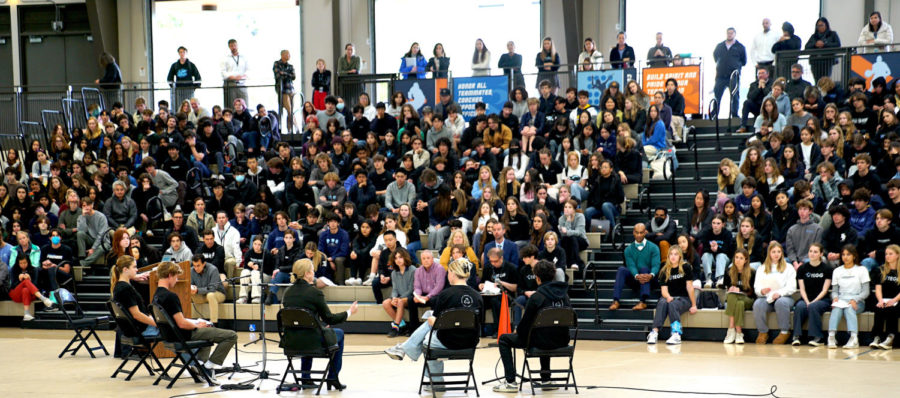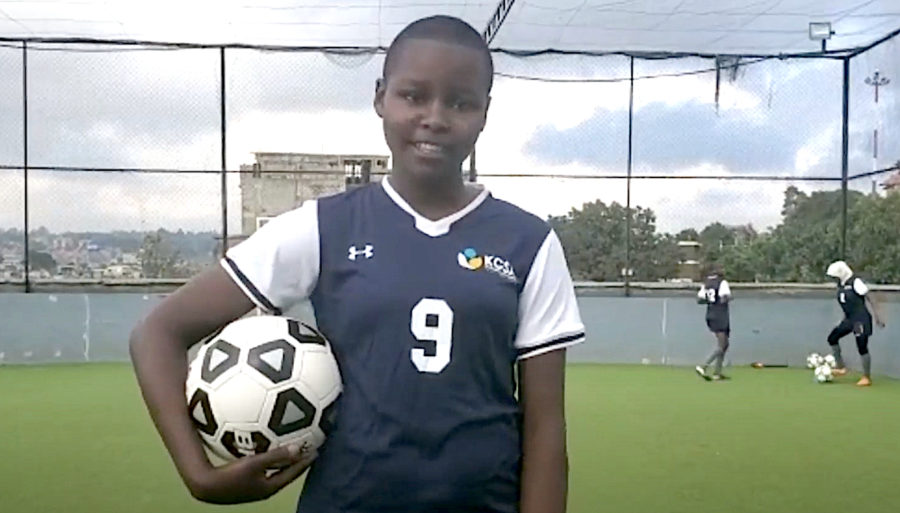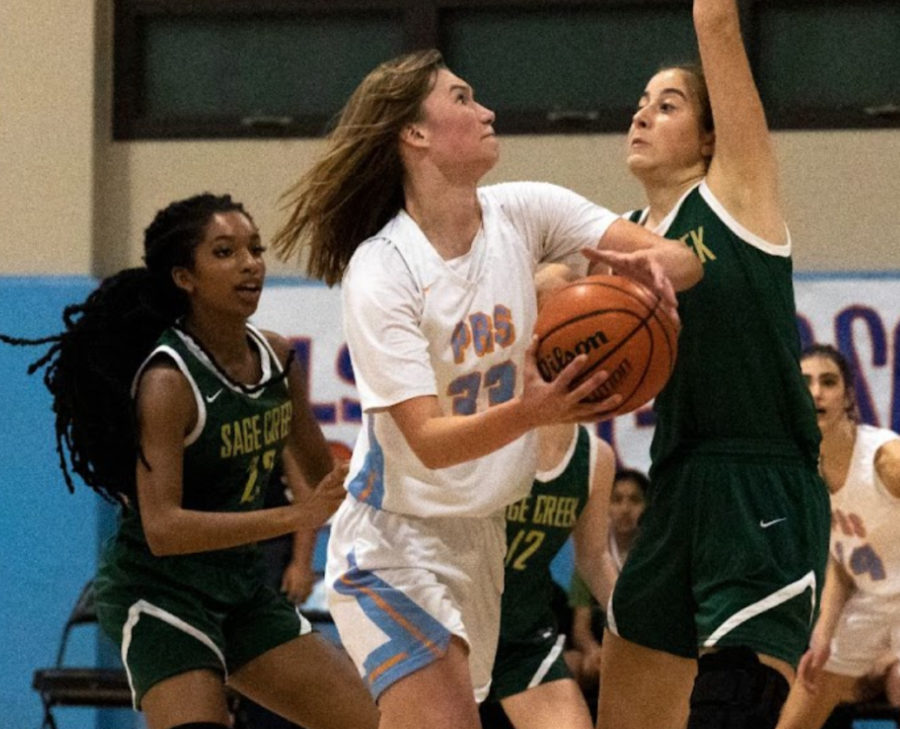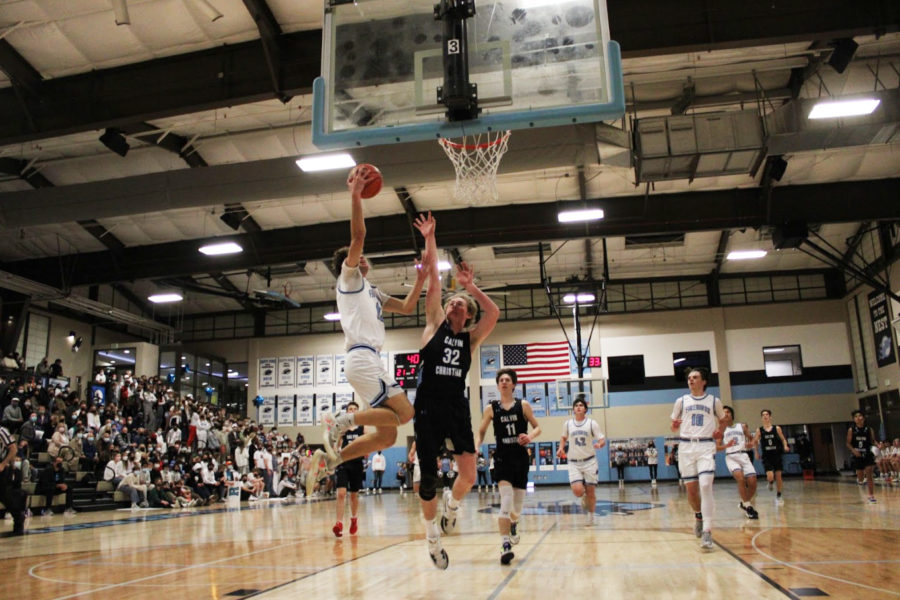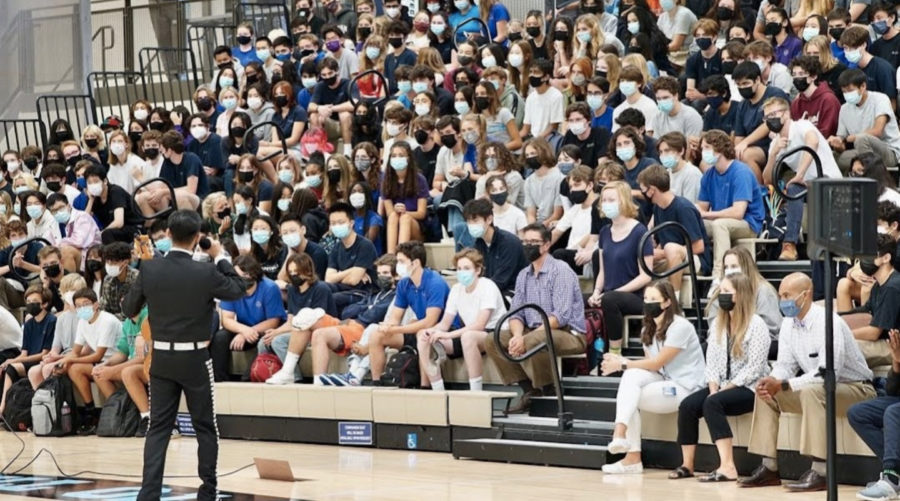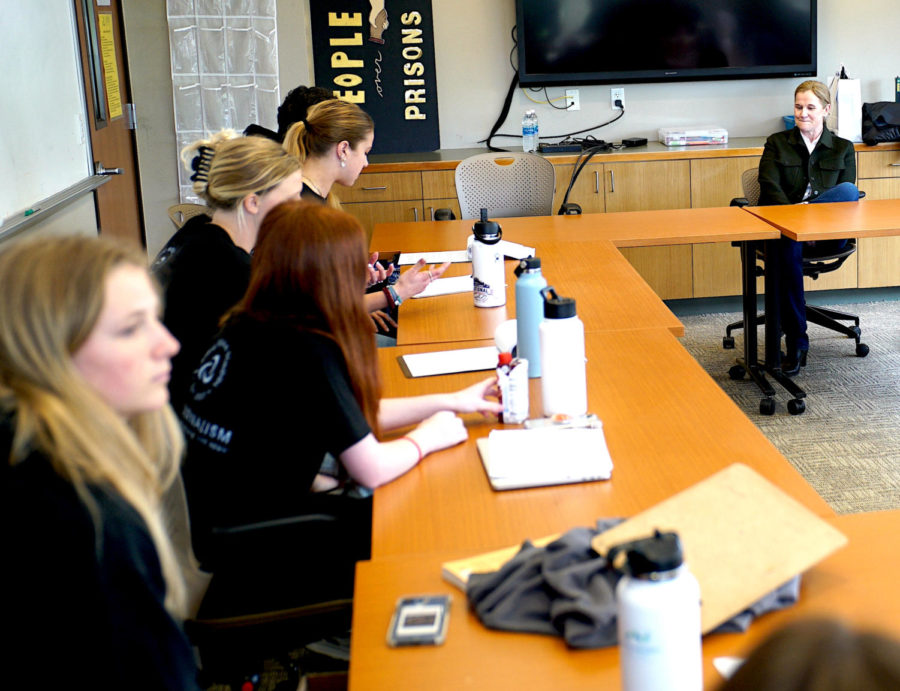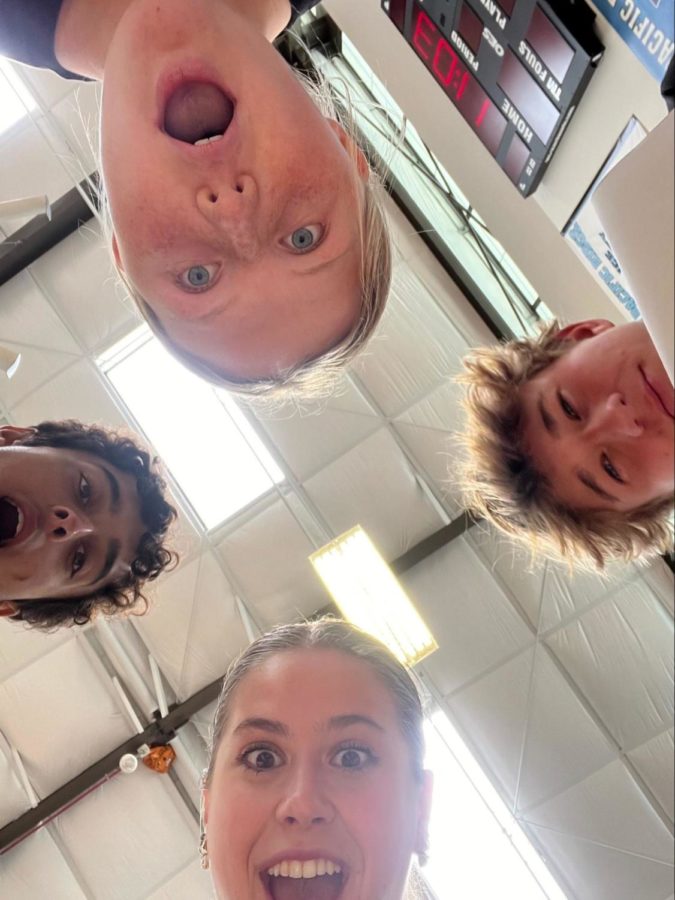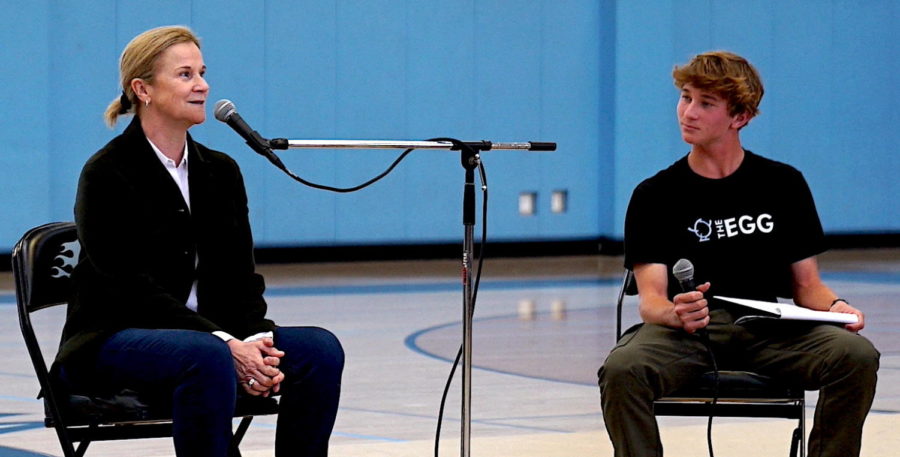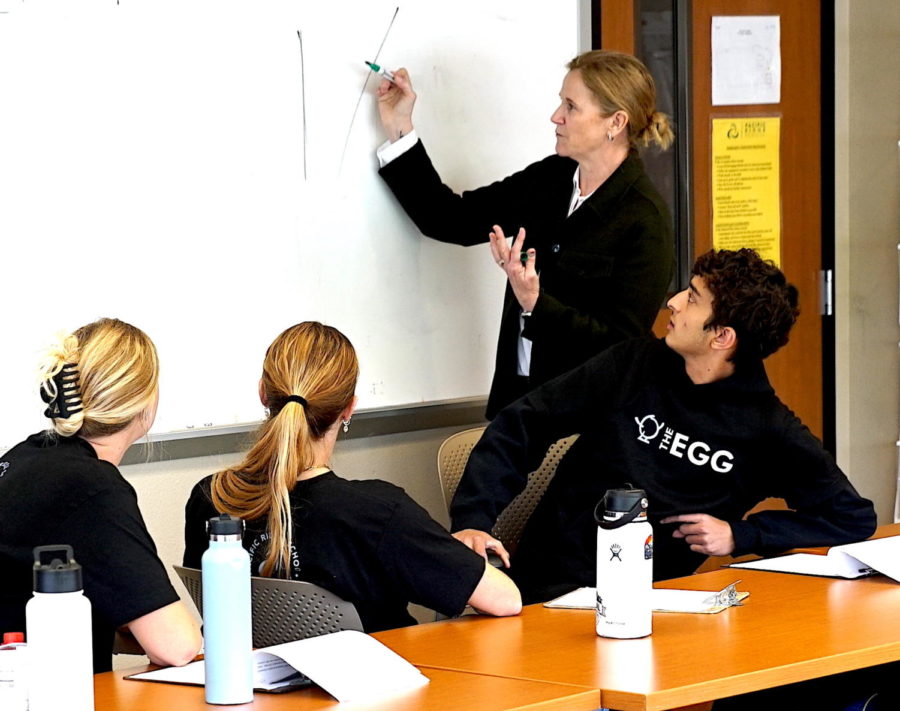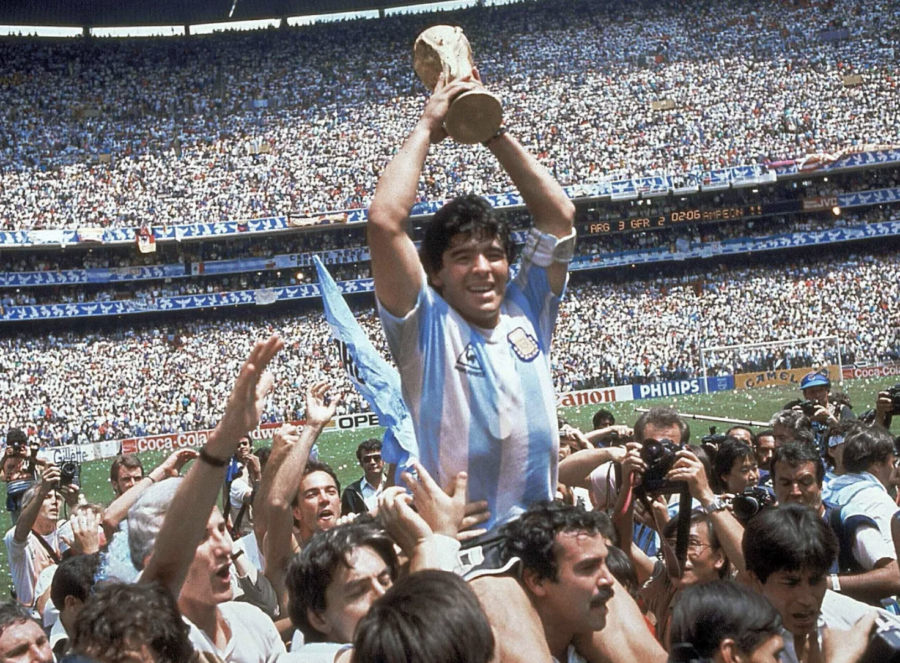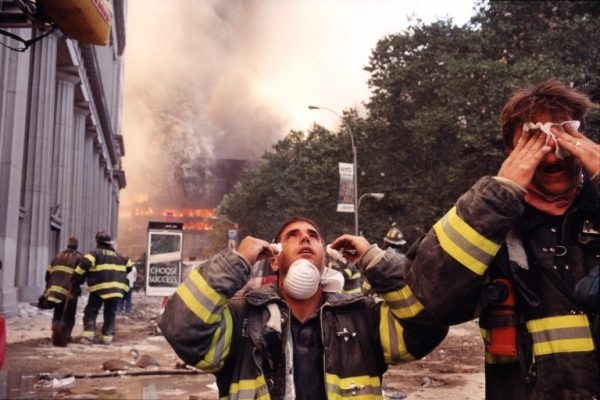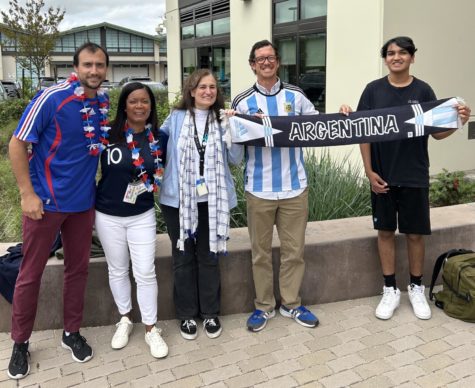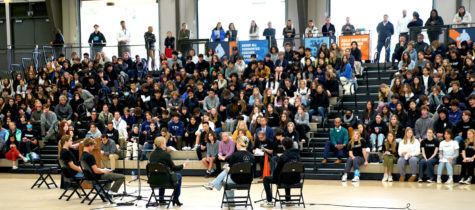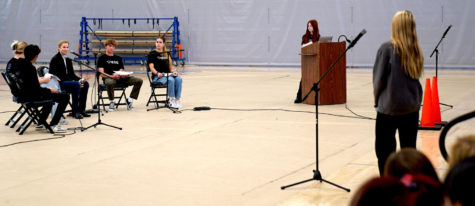Jill Ellis at PRS: Part 2
Player Development, Team Building & Education On and Off the Field
Question #5: Sierra Enge, who is a former PRS student, was drafted by the San Diego Wave in the first round of the US National Women’s Soccer League draft this year. What are the main factors that you look for in an individual player when choosing them to join your team?
Ultimately what you try and do as coach, and I think what we try to build here, is a team. And when you build a team, it’s no different than when you build a team in an organization. You want to have very diverse profiles of players, meaning you know certain players have certain skills, you’re going to have players that are really good in the air and have players that are really good at carrying the ball, etc., etc. So when you build a team, you’re really looking to try and bring slightly different profiles of players together, skill sets, what they bring to the table. Our coach likes to say, “Talent gets you through the door, character keeps you there.” So that’s a really important factor of the type of people that we bring to the Wave. There’s been a lot of players, respectfully, that want to come join our team, but we want to make sure it’s the right people—so we look at character, we certainly look at ability, you’ve got to get there with some special talent.
When I used to bring young players into the women’s national team, they’d be really intimidated, they’d be going up against these veteran players. And we always used to say to them, just remember what got you through the door. You have a special quality, you have a special gift, don’t try and be something you’re not in this moment, but lean into what got you here. I don’t know if you guys have ever heard of a player named Rose Lavelle—she scored the winning goal in the World Cup. Rose was a young player that came in, and I mean she’s pretty much this big (Coach Ellis gestures that Rose Lavelle is not very tall)—she’s not going to suddenly win all of the battles in the air. And she started to always pass the ball, pass the ball, pass the ball, pass the ball. And Rose is probably one of the best players in the world in actually dribbling and carrying the ball. And I remember I took her aside one time and I said, “You don’t have to defer here. Do what you do. That’s going to help us be better.” And so when you build a team, it’s finding those special qualities, but then it’s also empowering them, regardless of whether they’re new to the team or they’ve been on the team a long time, really empowering them to let their qualities shine.
Next Coach Ellis responded to some questions from our friends at the Kibera Girls Soccer Academy (KGSA) in Nairobi, Kenya. The questions were sent to PRS Journalism class on a pre-recorded video and asked by Sylvia, one of the KGSA student soccer players, and Coach Moha.
Question #6: Hey, Coach! I’m Sylvia from Kibera Girls Soccer and I’m a soccer player. I have a few good questions to put about girls. First, I’d like you to advise us on how to balance our education and play sports. And second, I’d like to know how teams and coaches from your place scout for players from Africa. And last, I’d like to know how you feel from being a soccer player to a coach.
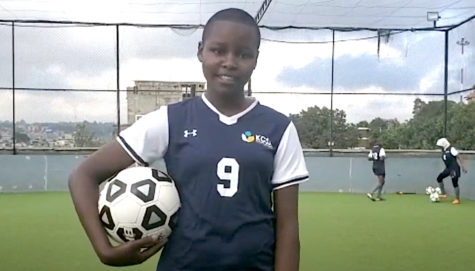
Question #7: Hey, Coach! I’m Coach Moha. I have a simple question. We have two kinds of players–some are good in books, some are good in soccer. What do you think can be done so that they all get the same opportunity? Those who are not good in books, they get opportunities in some of the colleges, maybe there, maybe here—what can be done? Thank you!
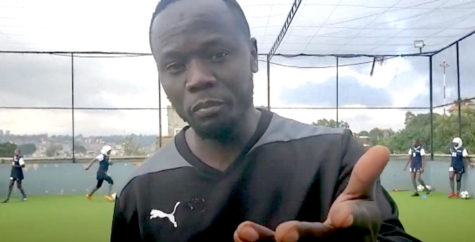
Well, I work with this group in Liberia—my friend who started two academies, one is in Liberia and one is in Morocco. The continent of Africa has so much talent, but there’s not really a lot of formalized training and there’s not this identification system that helps pull this talent. It is very rare that you can come out of Africa as a woman soccer player. So these two programs I’m involved with, they have actually had two players now from Liberia come over to U.S. high schools—they’ve been scholarshipped. One kid I know, Blessing, she is actually now looking to play in college. I think it’s on us as a developed country, in terms of trying to help and create opportunities and really be on the African continent and be present in certain environments. There’s a lot of work being done, there are so many very talented players, that I think it’s just trying to create opportunities and get infrastructure. One thing I talked to my coach about at the San Diego Wave the other day was we’re actually going to hire an international scout. It’s not going to be full-time, but being out there, going to major events to try and find young talent that is probably not going to be discovered unless we go out and reach out to them.
In college I was an OK player, but you know I really had no intention in going into coaching. I went to William and Mary, I got a degree in English, then I went onto a masters in technical writing. I had no interest in coaching and I actually went into the business world and I stopped playing once I was done in college. I would play pick-up, you know, and I would go play indoors with friends, but not formally. And then literally I was called by a friend of mine who was coaching at a university in Maryland and she said, “Hey, I’ve got this job—it’s six thousand dollars a year, what do you think?” And I was like well you know, I was doing fairly well, right? I was a lead technical writer, so I was making money. I got a car, which was all right. And then I remember talking to my parents and my mother was like, “Are you freaking nuts to throw that away?” And my father, who is a coach, was like, “Yeah, go for it.” So I did. I’d like to say—it’s probably a message for all you guys, young people—I like to say I choose passion over paycheck. I took the job, I didn’t know how it was gonna turn out, I cleaned some house, coached a club in order to make ends meet, but then I found out that I just absolutely loved what I did and there you go—it turned out OK.
Now, first and foremost, I think the beauty of sport, or even extracurricular stuff like the event you’re doing here for journalism class, is you learn to work in teams—the future is about working in teams when you get out of here. Rarely in life are you ever not going to have someone above you, below you, or next to you. So, anything that you’re doing that can put you in an environment where you work in teams, I think prepares you for later on. When I was a college athlete, I was kind of a nerd. I knew that I was going to go and be a professional soccer player, but what the sport gave me—I was a very shy kid—it gave me a group of people around me, it helped me learn routine and discipline, and cooperation. But how did it prepare me to be a coach? I think honestly my education helped me most. Did I have the best soccer coach in the world? No. Was I playing with Mia Hamm? No. So, it wasn’t so much the soccer that helped prepare me for it, it was the education I got in terms of how to manage challenges, how to interact—I mean I can walk into a room and I can go sit with the CEO of J.P. Morgan and I can go sit with a group of six year olds. That ability, I think you learn in cooperation, that ability to relate to people. So I think being a college athlete, was it hard at times? Yeah. I mean it was pre-academics so I was trying to manage time, I was not the best at it. I wouldn’t say I was a world class scholar but I certainly managed to get through. I didn’t know what I was going to major in. I was like, “Oh, I can write. OK, I’m going to be an English major.” I think what you’re doing right now, working with others, doing a project like this event, is going to serve you so well. Because I will tell you that there’s a lot of people out there, I’ve hired a lot of people, that they’re not great, they’re not comfortable working in teams. And I think you really have to be to be successful.
For Jill Ellis at PRS: Part 3 (Women’s Soccer, Social Justice & Equal Opportunity), click here.
To return to the top page of Jill Ellis at PRS, click here.
To read about the experiences of PRS student journalists when staging the Jill Ellis event, click on the following links for reflections by Gwen Laats, Mykelle Brainard, Nolan Agresti and Evan Buchholtz.

